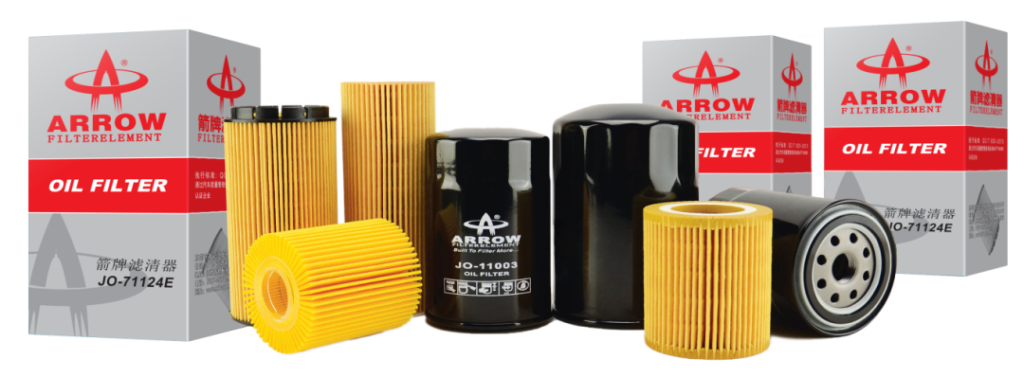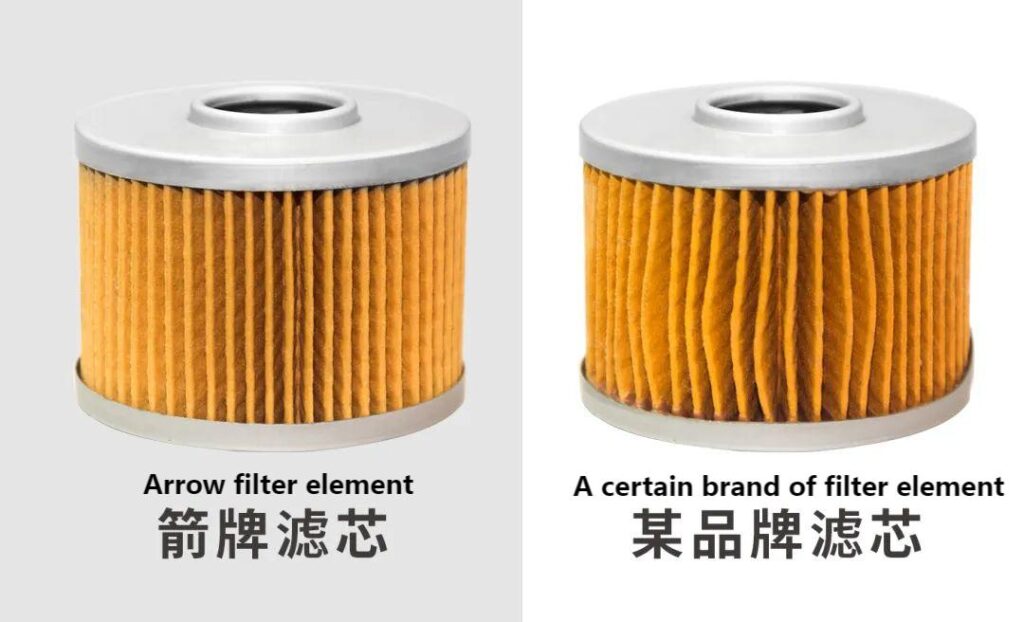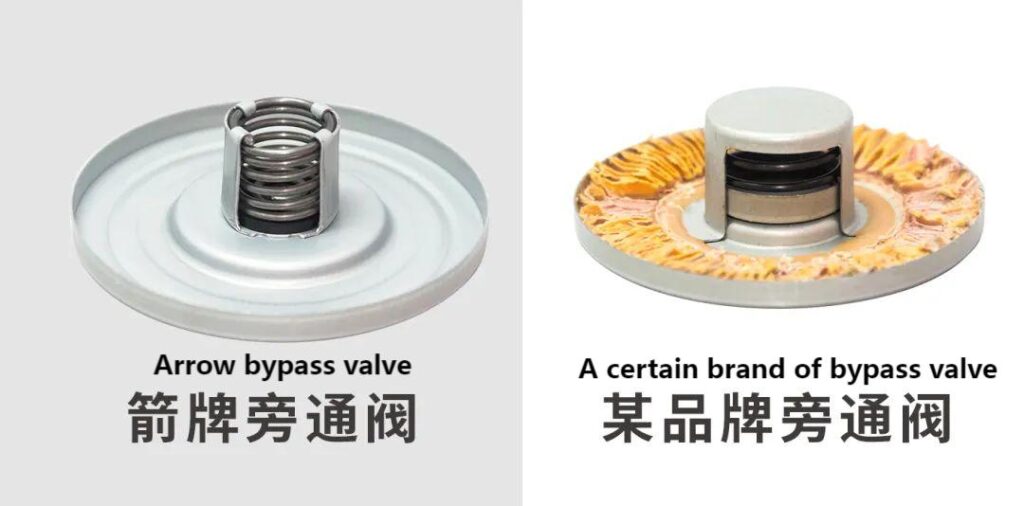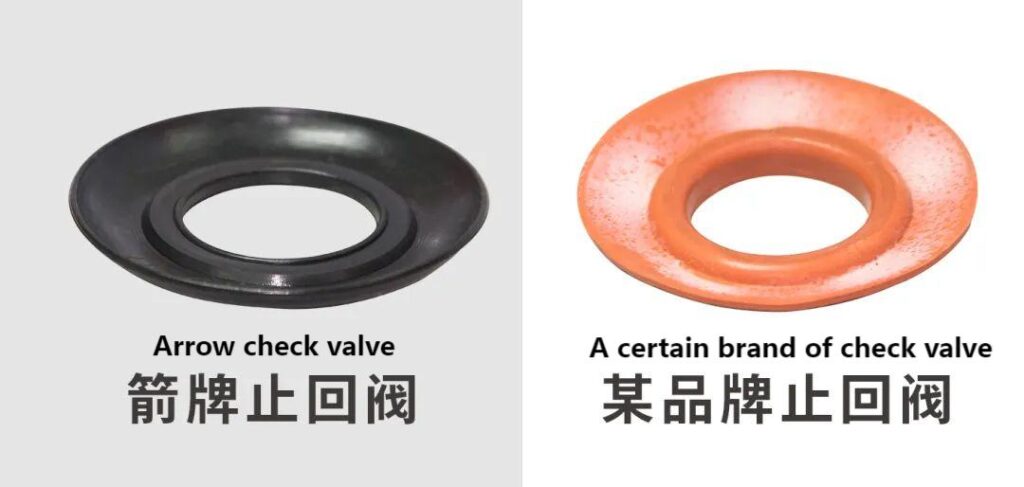As we all know, after a vehicle has traveled around 5,000 to 10,000 kilometers, it’s time to change the engine oil. At the same time, there is another critical component that needs to be replaced—the oil filter!
The oil filter, often referred to as the “kidney” of the vehicle, plays a key role in filtering out impurities and contaminants from the engine oil. These may include dust and moisture that enter the engine, metal shavings from cylinder wear, or other substances produced by oil oxidation. If the filtration is inadequate, it can result in poor engine performance and, in more severe cases, lead to major engine repairs. So, what factors should a high-quality oil filter possess?
1. Superior Filter Media Craftsmanship
A good oil filter must efficiently filter impurities from the oil while withstanding the impact of the flowing oil. It must not suffer from damage or leaks. Arrow Filters, for example, use high-grade filter paper containing PET fibers, which offers superior resistance to aging and carbonization. This ensures that the filter paper not only efficiently captures oil impurities but also withstands the high-speed flow of oil, preventing collapse and breakage.
2. High-Quality Bypass Valve
The importance of the bypass valve should not be underestimated. A poor-quality bypass valve might stay open, allowing unfiltered oil to flow into the engine and potentially cause damage. Alternatively, if the filter becomes clogged and the bypass valve fails to open in time, it can result in insufficient lubrication and cause dry grinding. High-quality oil filters have precision-engineered bypass valves that operate reliably under all conditions.
3. Premium Check Valve
While the bypass valve is essential during engine operation, the check valve is crucial after the engine is turned off. A high-quality check valve prevents oil from flowing back out of the filter, ensuring that the lubrication system is promptly supplied with oil when the engine is restarted, thus avoiding dry grinding. Low-quality check valves often fail to seal properly, increasing wear and tear during startup.
Importance of Proper Installation
It’s also important to note that even a high-quality oil filter can cause issues if not installed correctly. Improper installation can lead to oil leaks or the filter falling off. Here are some key installation tips:
- Clean the Interface: Ensure that the engine’s interface is clean before installing a new filter by removing any old oil residue and debris.
- Tighten Properly: Hand-tighten the filter, ensuring it’s snug but not overly tight, as this could damage the seal.
- Check for Leaks: After installation, start the engine and check the filter interface for any signs of oil leaks.
- Replace Regularly: Follow the vehicle manufacturer’s recommended replacement intervals to prevent filter blockages and performance issues.
Conclusion
A high-quality oil filter not only efficiently filters oil impurities to ensure smooth engine operation but also extends the engine’s lifespan. When choosing an oil filter, pay attention to the craftsmanship of the filter media, the quality of the bypass valve, the check valve, the material of the outer shell, and the design of the sealing ring. Additionally, ensure proper installation and regular maintenance to provide your vehicle with optimal protection!







Its like you learn my mind! You appear to understtand a lot about this, like
you wrote thee e book in it or something. I feeel that you simply can do with a few percent to force the message house a little bit, however instead
of that, this iss great blog. A fantastic read.
I will definitely be back. http://Boyarka-Inform.com/